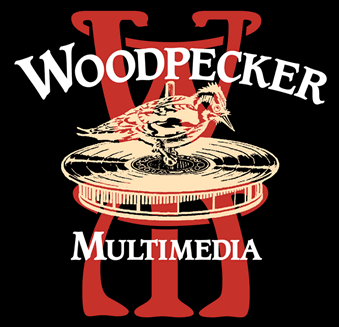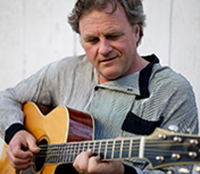|
|
Interview With York Weekly 2009
1. What inspired you to write this book now? What drew you to this particular story?
Must be fate. I stumbled onto the story quite by accident while reading a book about Maine shipwrecks, trying to get some ideas for a song I thought I might write someday. It was surprising to discover that there was a significant shipwreck, with just the right elements of plot, setting and characters, that happened right here. Even had premonitions and ghosts. And it was downright creepy to discover it on the night of Nov. 30, which was the anniversary of the 1842 shipwreck. I actually never intended to do anything more than write a song. My "Wreck of the Isidore" has been popular with my fans and I think it is one of my better-crafted songs. What happened is that I kept wondering and then digging to find out more about the wreck, long after the song was done. I came to realize that this shipwreck was a nice window into the past, and a perfect visual for modern people to imagine what Maine used to be like. There have been Europeans here for 400 years, and you really only see about 100 years of that when you look around casually. The incredible forests and the thousands of ships and all the people who built and sailed them are all long gone. Maine was once at the center of world commerce, and 1842 was right about the middle of the heyday of the age of sail. This local 3-masted tall ship, built in Kennebunk, smashing to splinters on the sheer cliff of Bald Head in the middle of the night in a ferocious nor'easter is a pretty gripping way to visualize life in Maine back then. The ages of the guys on the ship ranged from 15 to 53, and I talk in the book about things like the superstitions that surrounded the wreck, and the economics of building ships and sailing them around the world with local crews. When you pull back a little from this story and get it in context, you really understand a lot more about early life here, long before it was Vacationland.
2. I'm unclear as to what the genre of the book is. Is it fiction, nonfiction, a combination?
Non-fiction, though I do a bit of wondering and speculating. I want to tell the story of what probably happened, and then cast doubt on the sources and point out how hard it is to ever know what happened. I want to inform but also to entertain and to encourage other people to get interested and maybe even dig up more about it, and to realize how interesting a place this is. It's clear to me that any story dies if it is not being re-told or if nobody has a financial or political stake in propagating it. I'd like local people to better understand how rich our heritage is here, and to pay more attention to local folklore, food, music, everything. Disney and the federal government or the History Channel aren't going to focus on our little corner of the world, and we need to have a little DIY (Do It Yourself) spirit about it. I of course hope that all the folks around here who work all the time preserving our history in the museums and libraries will welcome and understand my intrusion into their world. I think I do it with some perspective on myself and with genuine interest and enthusiasm, which will make up for any amateur researching or other small sins I may have committed.
3. I know that most of your artistic career has been focused on your work as a musician. How did your artistic process when writing this book compare to that of composing music? Were there similarities? Differences? Did you learn something new about yourself as an artist when writing this book?
I thought it would be fun to put a CD in the book, because I can, and because I wanted to share the 4 songs I had written about the shipwreck. I added 9 more nautical-flavored pieces from my catalog of music to sort of make a "soundtrack for the movie." I am not sure exactly what impact it will have but I suspect my fans who like my music will enjoy the book, and some folks who pick up the book and don't know about my music will enjoy it. Musicians have always been part of the storytelling tradition, and by writing and performing songs about things, we do as much as anybody to propagate them. I don't find it at all odd to be in the crossroads where news, storytelling and history all meet. Having been an entertainer my whole life, I also think I have an instinct for how quickly people get bored, and I don't think I made the same mistakes in some of the history books I used to research it. Telling everything that happened might be good history, but it is bad entertainment, and I confess to cherry-picking the facts and telling the ones I liked. It's not necessary to drone on for 100 pages about the Missouri Compromise or the Webster-Ashburton Treaty. One or two sentences is enough for most modern people.
4. Who was your target audience as you were conceptualizing and writing this book?
I really intended this to mostly be of interest to people who live around here or visit here. It's possible that it might snag someone who just likes a good story or who lives in Kansas and likes to think about snowstorms on the rocky coast of Maine.
5. Do you have any new book writing projects on the horizon?
Now that I have a family and I want to spend time at home with my kids, it's easier to work on books than to go touring around the country performing. It's sort of like knitting-- you can pick it up and drop it pretty fast. If there is a crash and a scream from the next room I can save my work and jump up. I don't know what's next. Probably another educational guitar thing is next in the chute, but I hope I get inspired to do something like this again. It was a lot more fun than I expected and I really got into it and gained steam the longer I worked on it.
6. Who are your favorite authors?
I am a pretty random reader-- I like John Grisham and Michael Crichton, bit I also love Kinky Friedman, Hunter Thompson and Tom Robbins. I like James Michener and wish I had time to read more of him. Like a lot of people, I was damaged by the educational system that forced me to read a lot of books that I swear to this day are not that interesting or important. And I get immense pleasure from some lost, out of print writers whom the world has passed by like Jim Tully and Roark Bradford and James Cabell. It's just like the music business in that respect. Not many of the musicians I am into are very famous.
7. How long have you lived in York? What drew you to this area?
My mother's family has been in Maine since the 1600's, near Bath. I have always been attracted to Maine, and moved to Portsmouth in the 70's. I have lived in York almost 16 years now. It feels like home, and though I fantasize about living way Down East, it's not that practical. Maine is a very generous place, and even the first mile or two of Maine looks and feels like Maine. It takes 150 miles before Colorado looks like Colorado is supposed to look.
8. I found your biographical information on your website and was planning on incorporating some of that into the story. Is there anything else you'd like to add that I didn't inquire about?
I like to write, and can't stop sometimes, though I will now.
|
 H
H

 H
H
